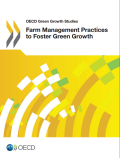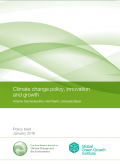

The 2015 EU Energy Union Package proposes integrating renewables into the market, just as the UK has moved away from Premium Feed-in Tariffs (FiTs) for renewable electricity supply (RES-E) to something closer to the standard FiT, which, when auctioned, demonstrated a 3% real fall in the weighted average cost of capital (WACC). The UK, which has experimented with nearly all forms of RES-E support, offers the evidence base for designing the Energy Union’s RES-E support. Innovation needs a further redesign to deliver adequate funding, best done through country contributions to an EU-wide innovation competition.

The ninth annual State of Green Business report continues the tradition of opening a window into how, and how much, companies are improving their environmental performance and how much their efforts are making a difference. It looks at both common measures (energy, waste and carbon) and some less-common ones (for example, company's low carbon investments over the past five years).
The report also discusses 10 top sustainable trends in circular economy, technology and supply chain, green infrastruture and mining practices, as well as carbon recycling and green jobs among others to highlight future green opportunities for businesses. Moreover, it provides a quantitative view of corporate performance, leadership, and market drivers.

Actions to stimulate low-carbon innovation – a global policy priority – are moving full speed ahead. Twenty countries from across the developed and developing world, including the UK, the US, China, India, the United Arab Emirates and Australia, recently signed up to ‘Mission Innovation’ at the 2015 United Nations Climate Change Conference in Paris, promising to double their public investment in low-carbon energy innovation and to promote increased international cooperation. Alongside this, a global group of 28 key investment players from 10 countries, including Bill Gates, Mark Zuckerberg and Richard Branson, are mobilising to deliver ‘truly transformative energy solutions for the future’ as part of the new ‘Energy Breakthrough Coalition’. In addition, the European Commission is developing a strategy to support low-carbon innovation, to be published with the second State of the Energy Union report in late 2016. This policy brief provides evidence to inform these and other initiatives seeking to stimulate low-carbon innovation.
